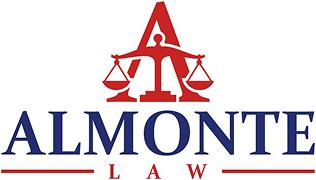Federal Felon in Possession and Firearms Charges Federal firearms charges are often pursued by federal prosecutors, partly because the government finds many of these cases relatively easy to prove. However, don’t be deceived—these cases are not as straightforward as prosecutors might suggest. There are numerous legal requirements that must be satisfied before the government can…
Continue reading ›Legal Pad: Federal Defense Attorney Blog
Welcome to the Legal Pad by Almonte Law—a resource for navigating the complexities of the federal justice system. Here, we break down high-stakes topics like white-collar crime, public corruption, drug conspiracies, internet crimes, exploitation crimes and immigration offenses into clear, practical insights. Drawing on years of experience as a former federal prosecutor turned federal criminal defense attorney, each post offers real-world perspective to help clients, families, and readers better understand the legal landscape.
Stay informed. Know your rights. Understand the system.
Disclaimer: The content on this blog is for informational purposes only and is not intended as legal advice. Reading or interacting with this site does not create an attorney-client relationship with Almonte Law. Robert Almonte, Federal Criminal Defense Attorney.
As a former Federal Prosecutor, I understand the many tools and investigative techniques law enforcement will use. One of the most critical documents you might encounter is a federal target letter. This letter serves as an official notice from a federal prosecutor (Department of Justice) that you are under investigation for a potential crime. If…
Continue reading ›What Are Federal Bribery Charges? Federal Bribery charges typically involve offering, giving, receiving, or soliciting something of value as a means of influencing the actions of an office in the discharged of their public or legal duties. While there are a wide variety of methods the prosecution will use to charge bribery conduct, this discussion…
Continue reading ›What Are Federal Drug Charges? Federal drug charges in the United States are governed by various statutes that outline the offenses and corresponding penalties related to drug-related activities. These laws cover a wide range of activities including manufacturing, distributing, possessing, and other drug-related offenses. Title 21 USC § 841 Prohibited acts A outlines severe penalties…
Continue reading ›What Is Asset Forfeiture? The Department of Justice (DOJ) consists of a specialized division dedicated to the criminal and civil forfeiture (seizure or taking) of property. This division, known as the as the Money Laundering and Asset Recovery Section (MLARS) spearheads federal agencies in their various forfeiture programs. Generally, asset forfeiture can be defined as…
Continue reading ›What Is the Anti-kickback Statute? The anti-kickback statute makes it a crime to knowingly and willfully solicit, receive, offer, or pay “any remuneration” to induce business that is reimbursed under a federal health care program. The anti-kickback statute prohibits a person from either paying or receiving something of value to induce or reward the referral…
Continue reading ›What Is Health Care Fraud? In general, for health care fraud, federal officials will seek charges under 18 U.S.C. § 1347(a). The elements for this section are: (a) Whoever knowingly and willfully executes, or attempts to execute, a scheme or artifice— (1) to defraud any health care benefit program; or (2) to obtain, by means…
Continue reading ›Human (Alien) Smuggling: A Brief Overview of Operation Lone Star and Texas State Human Smuggling Law In the past, smuggling of persons charges were the primary responsibility of the Federal government. Today, however, because of a program implemented by Governor Greg Abbott called Operation Lone Star, the State of Texas is at the forefront of…
Continue reading ›What Is It? White-Collar Crime is generally considered a crime for financial gain which is committed by means of fraud or misrepresentation. According to the Federal Bureau of Investigation (FBI), “White-collar crime is generally non-violent in nature and includes public corruption, health care fraud, mortgage fraud, securities fraud, and money laundering, to name a few.”…
Continue reading ›






